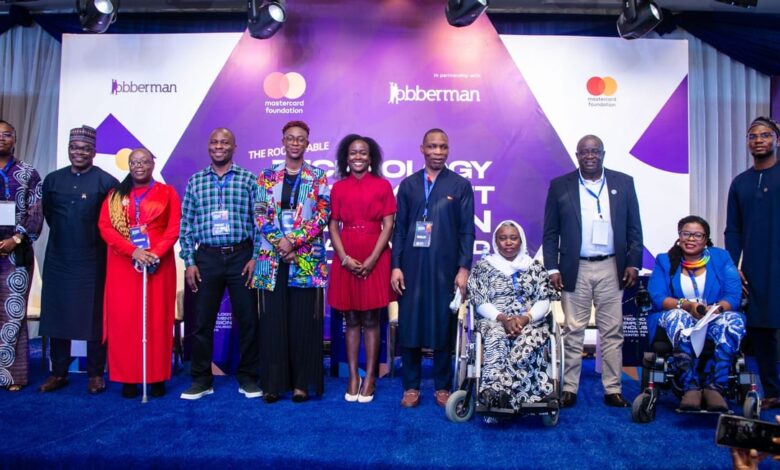
Africa stands at a critical juncture in addressing one of its most pressing challenges: youth unemployment. The partnership between The African Talent Company (TATC) and Mastercard Foundation has emerged as a beacon of hope, demonstrating how technology-driven solutions can create meaningful employment opportunities for millions of young Africans. Through their innovative approach, they have trained over 2.4 million young Nigerians and facilitated more than 600,000 job placements since 2020, setting a powerful precedent for continental expansion.
The Youth Employment Crisis in Africa
Africa faces an unprecedented youth employment challenge that demands immediate attention. With nearly 420 million youth aged 15-35 across the continent, the statistics paint a stark picture of economic exclusion. One-third of these young people are unemployed and discouraged, another third are vulnerably employed, and only one in six has access to wage employment. This crisis is particularly acute given that 10 to 12 million youth enter the workforce annually, yet only 3.1 million jobs are created.
The magnitude of this challenge becomes more apparent when considering that Kenya’s digital economy is projected to contribute KES 662 billion to the country’s GDP by 2028. This presents both an opportunity and a responsibility to ensure that Africa’s youth are equipped with the skills needed to participate in this digital transformation.
A Partnership Built for Impact
The African Talent Company (TATC) and Mastercard Foundation have demonstrated how strategic partnerships can create meaningful change. Since 2020, their collaboration has successfully trained over 2.4 million young Nigerians and facilitated more than 600,000 job placements through Jobberman Nigeria. This remarkable achievement serves as a foundation for expanding youth employment solutions across East Africa.
The partnership operates through multiple programming platforms including country programs focused on specific nations, pan-African programs with broader reach, education and transitions support, and special programs addressing unique challenges. This multi-pronged approach ensures that interventions can be tailored to local contexts while maintaining continent-wide coherence.
Hilda Kabushenga, CEO of The African Talent Company, emphasized the transformative potential of their approach: “Technology can and must be a force for inclusion, not division. As the world of work evolves, we must ensure that no one is left behind. These conversations are about equity, access, and opportunity.”
Technology as a Driver of Inclusion
The partnership’s approach leverages technology to create inclusive employment opportunities. Through data-driven, community-based models and low-bandwidth digital solutions, they ensure broad accessibility, especially for underserved youth. The recent Technology and Employment Inclusion in Marginalised Contexts (TEIMC) Roundtable in Abuja highlighted critical findings about digital inclusion.
This technology-first approach aligns with broader trends in Africa’s digital transformation. Recent reports indicate that 9 out of 10 jobs globally will require digital skills over the next ten years, making digital literacy not just an advantage but a necessity for employment success.
The initiative’s emphasis on low-bandwidth solutions is particularly crucial for reaching underserved communities. This approach ensures that geographical location or infrastructure limitations don’t become barriers to accessing employment opportunities.
Breaking Down Barriers for Marginalized Communities
The groundbreaking report from the TEIMC Roundtable revealed that while 72% of employers in Nigeria make no effort toward inclusive hiring, digital tools and remote work are creating new opportunities. Notably, 55% of persons with disabilities and 44% of displaced women surveyed had secured some form of work, mainly through self-employment in creative media and agriculture sectors.
This focus on marginalized communities reflects a broader understanding that inclusion is not just a moral imperative but a strategic advantage. The data shows that when barriers are removed and appropriate support is provided, underserved populations can successfully participate in the digital economy.
The initiative specifically targets women in disadvantaged communities, persons with disabilities (PWDs), and internally displaced persons (IDPs). This targeted approach recognizes that women make up less than a third of the global tech workforce and that deliberate action is needed to promote inclusivity.
Scaling Success Across East Africa
Building on the Nigerian model’s success, TATC is expanding operations across East Africa through BrighterMonday Kenya and BrighterMonday Uganda. These platforms apply the same proven approach, utilizing technology to bridge the gap between job seekers and employers. Recent initiatives include Career Clinics in Kakuma and Kampala, providing comprehensive support including CV reviews, coaching, and digital skills training.
The expansion strategy demonstrates the scalability of their model. In Kenya, BrighterMonday hosted its first Career Clinic in Kakuma in partnership with the Amahoro Coalition, engaging over 200 displaced youth and stakeholders. Similarly, BrighterMonday Uganda organized a Career Clinic in Kampala under the theme “Skills For Today: Empowering Uganda’s Youth To Take Control Of Their Future.”
This regional approach is particularly relevant given that 800,000 new job seekers, primarily young people, enter Kenya’s market each year, while job creation has not kept pace with demand.
The Digital Skills Revolution
Digital transformation is fundamentally reshaping Africa’s employment landscape. In Sub-Saharan Africa alone, an estimated 230 million jobs will require digital skills within the next decade. This transformation presents both challenges and opportunities, with recent data indicating that 9 out of 10 jobs globally will require digital skills over the next ten years.
The African Talent Company’s approach leverages technology to create multiple pathways to employment. Their platforms provide digital recruitment solutions, offline recruitment services, and manpower outsourcing capabilities. This comprehensive approach ensures that both job seekers and employers can access services regardless of their technological readiness.
The skills gap is particularly pronounced in several key areas. In Kenya, 43% of companies reported a significant increase in demand for AI-related skills, while 86% of businesses identified cybersecurity as their top skills gap. These findings underscore the urgent need for targeted skills development programs.
Measuring Impact and Ensuring Sustainability
The partnership between TATC and Mastercard Foundation has established clear metrics for success. Their data-driven approach ensures accountability and continuous improvement, tracking not only job placement numbers but also job quality, retention rates, and income progression. This comprehensive monitoring system enables partners to refine their approaches and maximize impact.
Beyond numerical achievements, the partnership demonstrates qualitative success through improved workplace productivity, enhanced gender inclusion, and strengthened community resilience. The focus on marginalized communities ensures that benefits reach those who need them most.
The sustainability model is particularly noteworthy. Rather than relying solely on donor funding, the initiative develops revenue-generating services that can support long-term operations while maintaining focus on social impact. This approach ensures that the programs can continue to operate and expand even as funding landscapes change.
A Vision for Continental Expansion
The expansion from Nigeria to East Africa represents just the beginning of a broader continental vision. Future plans include additional African countries, enhanced digital platforms, and deeper integration with educational institutions. The goal is to create a continent-wide network of youth employment services that can adapt to local needs while maintaining high standards of quality and inclusion.
Hilda Kabushenga emphasized this vision: “This expansion reflects our belief that every young African, regardless of circumstance, deserves the opportunity to earn a dignified livelihood. The partnership in Nigeria has laid a strong foundation, but the real work has just begun.”
The initiative’s success depends on continued innovation, strategic partnerships, and commitment to measuring impact. By maintaining focus on the most vulnerable populations while scaling operations, TATC and the Mastercard Foundation are demonstrating that inclusive economic growth is both possible and profitable.
The Path Forward
The partnership between The African Talent Company and Mastercard Foundation represents more than just a successful employment program. It demonstrates how technology-driven solutions, when combined with inclusive programming and strategic partnerships, can create pathways to dignified work for millions of young Africans.
As digital transformation continues to reshape global employment patterns, Africa’s ability to adapt and upskill its workforce will determine whether the continent emerges as a leader in the digital economy or falls behind in the global race for technological advancement. The TATC-Mastercard Foundation model provides a roadmap for other organizations and governments seeking to address youth unemployment through innovative, technology-enabled solutions.
The focus on marginalized communities ensures that benefits reach those who need them most, while the emphasis on digital innovation positions participants for success in the evolving global economy. This comprehensive approach demonstrates that inclusive economic growth is not only morally imperative but also economically viable.
With the African Development Bank’s Coding for Employment program training over 500 digital ambassadors across Africa and initiatives like Google and HP’s Skills for Business programme targeting 10,000 SMEs, the continent is witnessing a coordinated effort to address the skills gap and create employment opportunities for its growing youth population.
The success of this partnership provides hope that Africa’s most pressing challenge can be transformed into its greatest opportunity. By investing in the skills, tools, and access that young Africans need to thrive in the evolving labor market, initiatives like this are not just creating jobs but building the foundation for sustainable economic growth across the continent.






